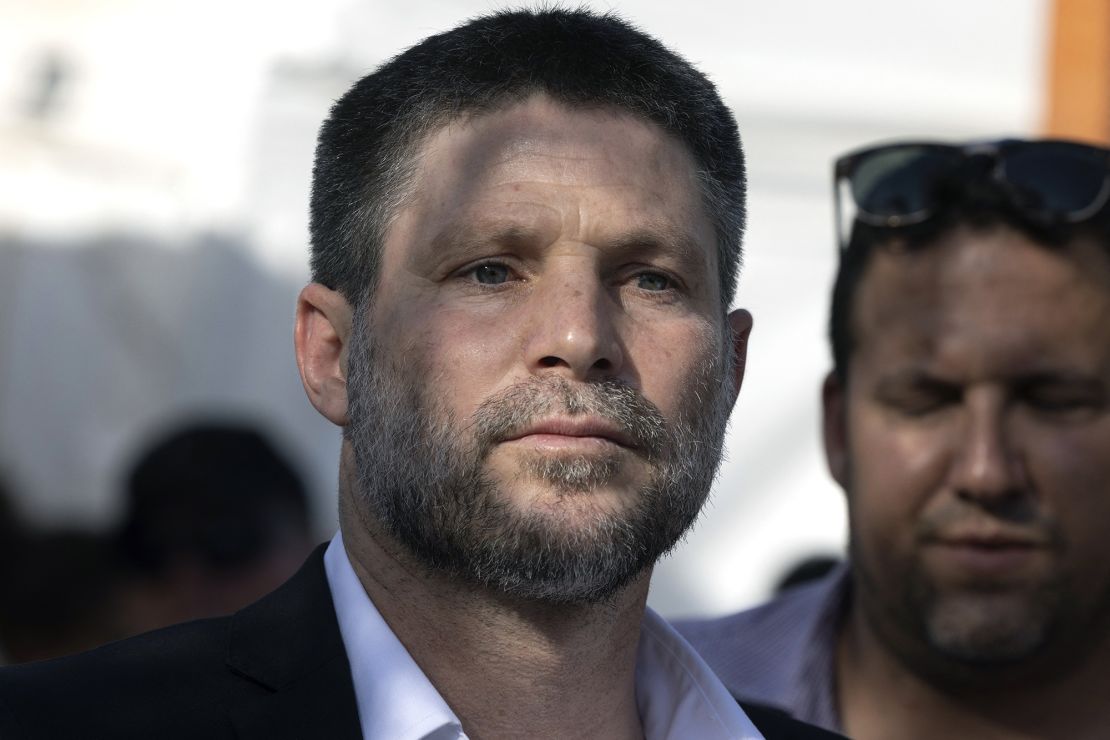Israel’s economy is paying a high price for its widening war
Analysis by
Hanna Ziady, CNN
October 4, 2024
Hay is being harvested in front of an Israeli army battle tank in southern Israel near the border with the Gaza Strip, as smoke rises above the Palestinian territory in May 2024.
Jack Guez/AFP/Getty Images
In late September, as Israel’s nearly year-long war widened and its credit rating was downgraded yet again, the country’s finance minister, Bezalel Smotrich, said that, while Israel’s economy was under strain, it was resilient.
“Israel’s economy bears the burden of the longest and most expensive war in the country’s history,” Smotrich said on September 28, a day after Israeli airstrikes killed Hezbollah’s leader Hassan Nasrallah in Lebanon’s capital Beirut, ratcheting fears that tensions with the militant group would turn into a full-blown conflict. “The Israeli economy is a strong economy that even today attracts investments.”
Almost a year after Hamas’ deadly attack on October 7, Israel is pushing forward on multiple fronts: launching a ground incursion against Hezbollah in Lebanon, carrying out airstrikes in Gaza and
Beirut, and threatening retaliation for Iran’s ballistic missile attack earlier this week. As the conflict
spills over into the wider region, the economic costs will spiral too, both for Israel and other countries in the Middle East.
“If recent escalations turn into a longer and more intense war, this will take a heavier toll on economic activity and growth (in Israel),” Karnit Flug, a former governor of Israel’s central bank, told CNN on October 1.
The war has significantly worsened the situation in Gaza, pushing it into an economic and humanitarian crisis long ago, and the West Bank is “undergoing a rapid and alarming economic decline,” the United Nations said in a report last month.
The Lebanese economy, meanwhile, could contract by up to 5% this year due to cross-border attacks between Hezbollah and Israel, according to BMI, a market research firm owned by Fitch Solutions.
Israel’s economy could shrink even more than that, based on a worst-case estimate by the Institute for National Security Studies at Tel Aviv University.
Even in a more benign scenario, its researchers also
see Israel’s gross domestic product per head — which in recent years overtook the United Kingdom’s — falling this year, as Israel’s population grows faster than the economy and living standards decline.
Before the October 7 attack and ensuing Israel-Hamas war, the International Monetary Fund forecast that Israel’s economy would grow by an enviable 3.4% this year. Now, economists’ projections range from 1% to 1.9%. Growth next year is also expected to be weaker than earlier forecasts.
Yet Israel’s central bank is not in a position to cut interest rates to breathe life into the economy because inflation is accelerating, propelled by rising wages and soaring government spending to fund the war.






































